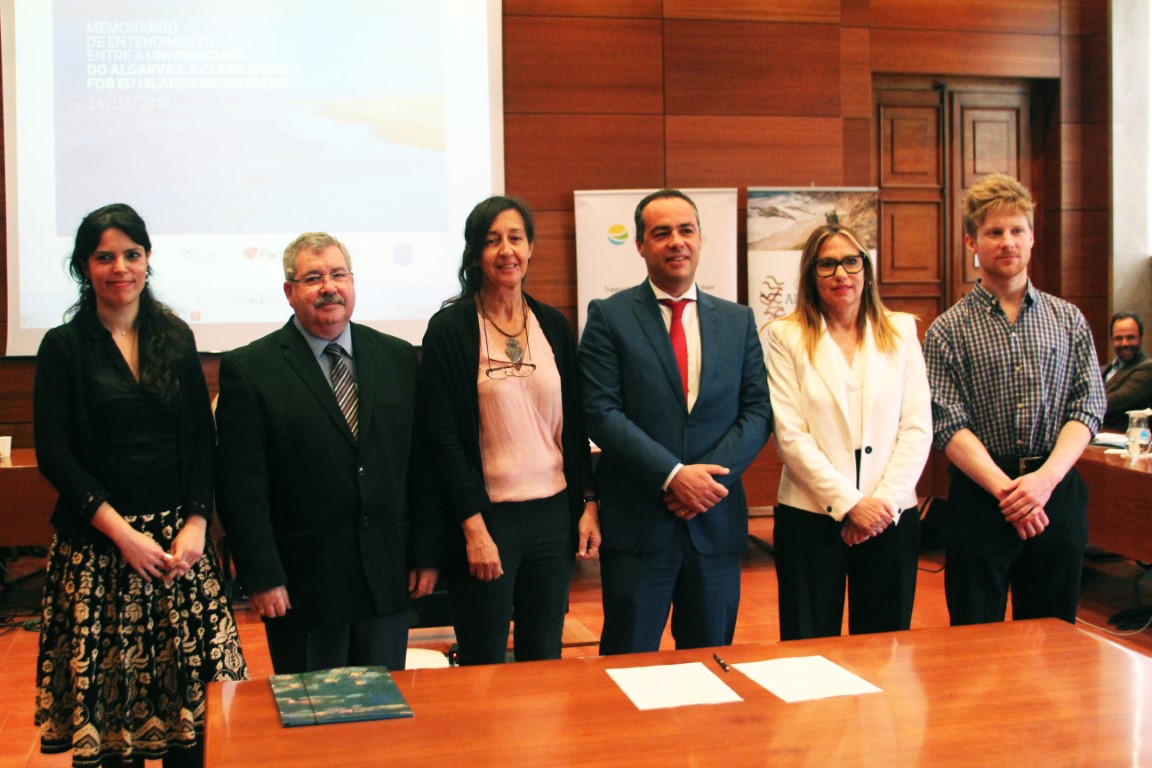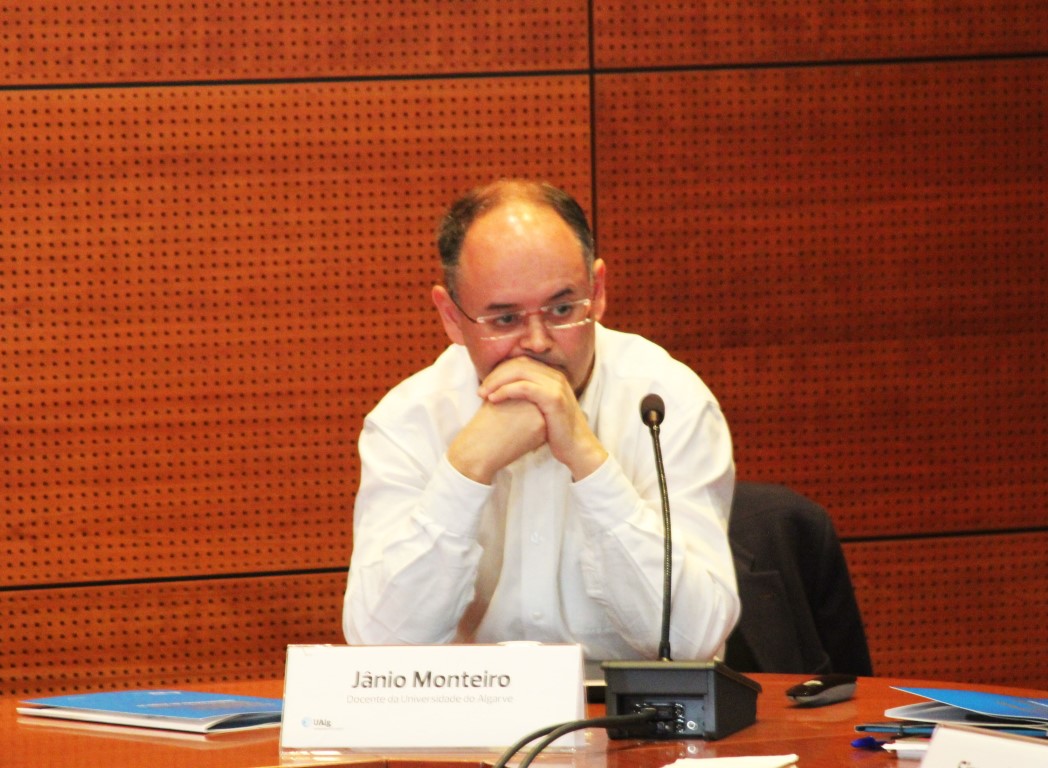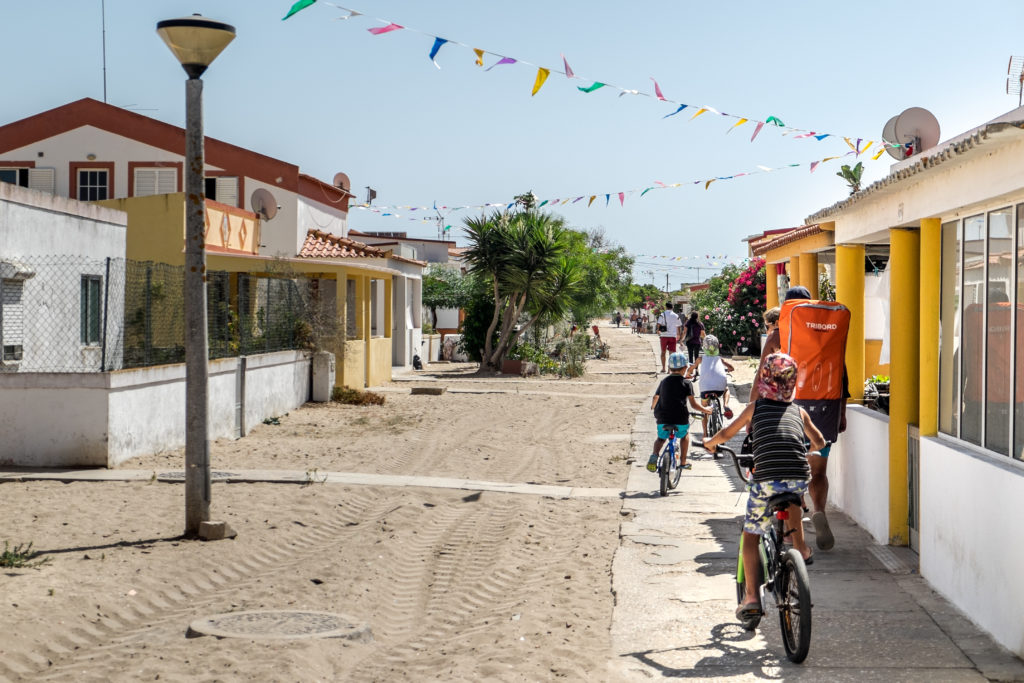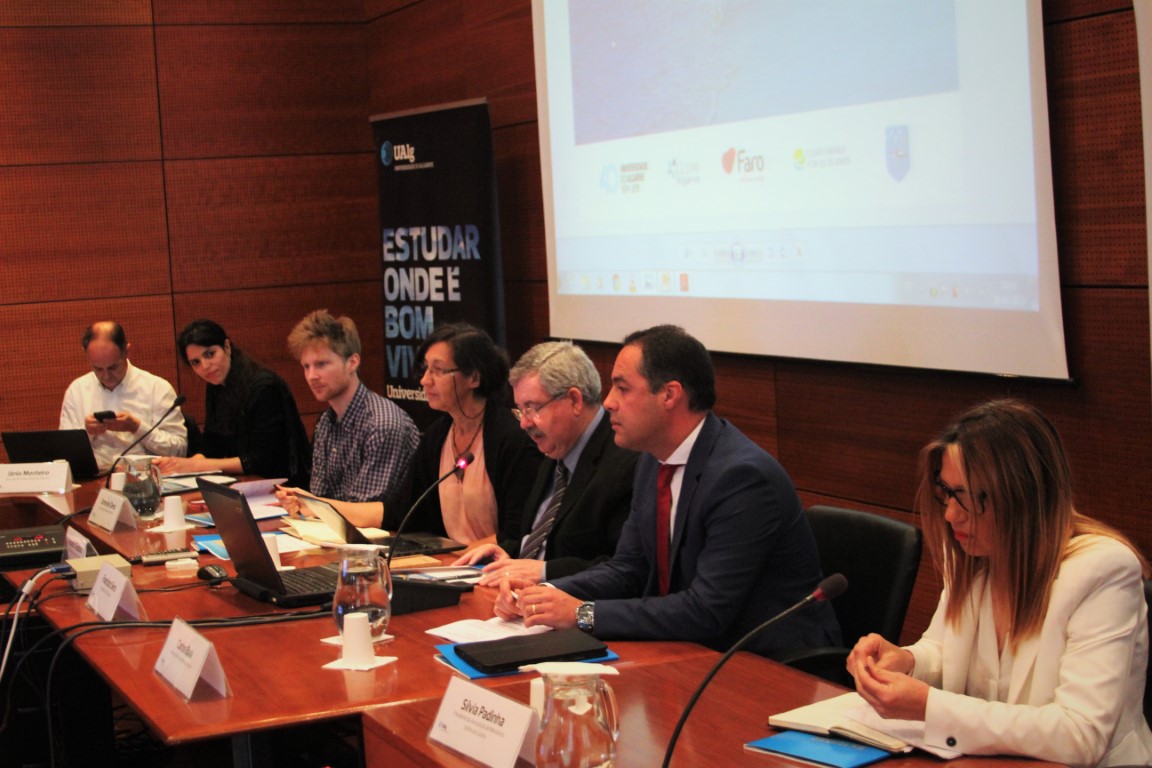A first step towards Energy transition of Culatra Island. This is how the protocol signed this Tuesday, March 26, between the European Secretariat for Clean Energy in the Islands (Clean Energy for EU Islands Secretariat), the University of the Algarve (UAlg), the Chamber of Faro, the Association of Residents of Culatra and the Regional Coordination and Development Commission of the Algarve.
Since last month it was known that the Culatra had been one of the six chosen pilot islands for a European project of transition to clean energy, but it is only now that this partnership has materialized.
Basically, from this moment onwards, the effective work will begin.
«Everything will be defined from now on. We want to choose a strategy so that we can apply to the various sources of European funding. The signing of the protocol was a first step as this was the first time that the secretariat came to the Algarve», explained Jânio Monteiro, researcher at UAlg and one of those responsible for the project.

As for the question of candidacies, having "the seal of a European secretariat, it is easier to have the approval of those that come to be made", he said.
But help doesn't stop there. There will also be support from the secretariat to make "a mapping of the situation, in terms of energy, in Culatra". This will, in fact, be the “first job to be done”, after a “very initial” survey already carried out.
It is true that the main objective of the entire project “Culatra 2030 – Sustainable Energy Community” is to make the fishing island self-sufficient from an energy point of view.
“Solar and wind energy are also two of the sources we want to use. The wind part will easily generate a large amount of energy», exemplified Jânio Monteiro.
Other ideas include, for example, installing a recycling station, using electric boats or implementing water desalination processes.
All of this will also be analyzed from the "authorization point of view". “We don't want to do anything we can't because there is an area of the Ria Formosa Natural Park and we have to respect it,” said the researcher.

By the summer of this year, the Agenda for the Energy Transition has to be ready, a document that will “define how to make the island, especially in the electricity part, self-sufficient”.
In the course of this process, solutions will be discussed with groups of experts, including researchers and business associations.
This is a project that has received great acceptance from the people of Culatr. Sílvia Padinha, president of the Residents' Association, was also present at the signing of the protocol, where she said that "we are all responsible for change".
"Oh feedback of the population has been good. We are committed. It will take some time, but we want and need this change because we, who live on resources, have to be the first to defend them», he said.
In Sílvia Padinha's understanding, this «is not a challenge, but a challenge». "Let's take this boat to good port to make Culatra an example," he said bluntly.
By the way, this was an idea also defended by Francisco Serra, president of CCDR Algarve, and by Alexandra Teodósio, vice-rector of UAlg.
“The subject is very important because of the application it can have for the future. The completion of this project may have good practice implications for so many other parts of the world», explained, for example, Francisco Serra.
But for “Culatra 2030” to be a success, everyone's involvement is needed. On the part of the Chamber of Faro, councilor Carlos Baía guaranteed: «count with us».
At least from these five entities – European Secretariat for Clean Energies in the Islands, UAlg, Chamber, Association of Residents and CCDR Algarve – support is guaranteed, as well as from some private entities that have already joined the project, such as sunconcept.
The objective, this, is common to all: to make Culatra, a centenary fishing center where around 400 families live, an example of how it is possible to live only with clean energy.
Photos: Pedro Lemos | Sul Informação




















Comments